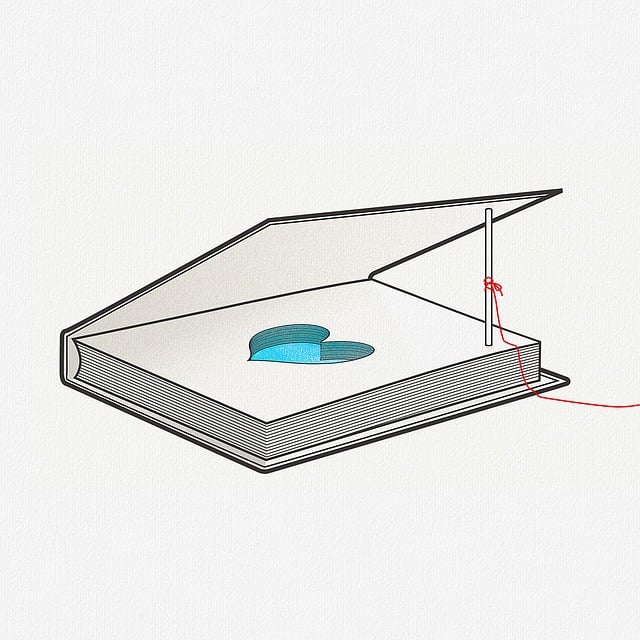The Oregon probate process begins with filing a petition in the county where the deceased resided or owned property. This triggers legal proceedings to distribute assets according to a will or state law. Essential documents must be gathered and filed, leading to the appointment of a personal representative who manages the estate and adheres to the Oregon probate timeline for inventories, accountings, and tax documents. Appointing an Executor is crucial, responsible for financial management, legal understanding, and commitment to time and effort. The initial phase involves identifying and organizing assets, setting the stage for distribution according to the deceased's wishes or state laws. Debts and taxes are paid during this process, with the probate court overseeing the fair division of assets. Understanding the Oregon probate timeline is key; after a will is admitted, an executor distributes assets as instructed or per state law. The final stage involves closing the estate and securing a discharge, concluding legal proceedings.
Understanding each stage of the Oregon probate process is essential for anyone navigating the complexities of estate administration in this state. From initiating the process and appointing an executor to gathering assets, paying debts, distributing them among beneficiaries, and finally closing the estate, each step in the Oregon probate timeline demands careful attention. This guide delves into the key aspects of probate court in Oregon, providing a comprehensive overview for those facing these proceedings. By understanding the Oregon estate process, you can ensure a smoother journey through what can be a challenging time.
- Initiating the Oregon Probate Process: When and How to File
- Appointing an Executor: Responsibilities and Selection Criteria in Oregon
- Gathering and Valuing Assets: What to Expect During This Phase
- Paying Debts and Taxes: Navigating Financial Obligations Post-Death
- Distributing Assets: Beneficiaries, Heirs, and the Legal Process
- Closing the Estate: Final Proceedings and Obtaining a Discharge in Oregon Probate Court
Initiating the Oregon Probate Process: When and How to File

Starting the Oregon probate process begins with a petition to the probate court in the county where the deceased person (decedent) lived or owned property. This is a crucial step in understanding probate in Oregon, as it initiates legal proceedings to distribute the decedent’s assets according to their will or state laws if they died without one. The first action typically involves gathering essential documents, such as the will, death certificate, and identification of all beneficiaries and heirs. These must be filed with the court along with the petition for probate.
The court will then appoint a personal representative (often a named executor in the will) to oversee the estate process in Oregon. This individual is responsible for managing the decedent’s assets, paying debts, and distributing property to the beneficiaries as outlined in the will or as required by state law if there is no valid will. Once appointed, the personal representative must adhere to the Oregon probate timeline, which includes specific deadlines for filing inventories, accountings, and tax documents, ensuring a transparent and efficient administration of the estate.
Appointing an Executor: Responsibilities and Selection Criteria in Oregon

In Oregon, appointing an Executor is a crucial step in the probate process. The Executor, or personal representative, is responsible for administering the deceased’s estate according to the terms of their will or, if there is no will, under state law. Key considerations when selecting an Executor include the individual’s ability to manage finances, their understanding of legal proceedings, and willingness to commit time and effort to the role. The chosen Executor must be over 18 years old, mentally competent, and not a beneficiary of the estate (to avoid potential conflicts of interest).
Once appointed by the probate court in Oregon, the Executor has several responsibilities. These include gathering and inventorying assets, paying debts and taxes, distributing assets to beneficiaries, and filing necessary legal documents throughout the Oregon probate timeline. Understanding these responsibilities is essential for ensuring a smooth and efficient Oregon estate process, and for navigating the probate proceedings in the Oregon probate court.
Gathering and Valuing Assets: What to Expect During This Phase

During the initial phase of the Oregon probate process steps, families often find themselves navigating a complex landscape as they gather and organize their loved one’s assets. This crucial stage involves a comprehensive evaluation of the estate, including identifying all valuable possessions, real estate, investments, and personal belongings. It is here that the true extent and nature of the estate are revealed, forming the foundation for subsequent probate court Oregon proceedings.
Families can expect to spend time collecting important documents, such as financial statements, property titles, and insurance policies, which are essential for valuing the assets accurately. This process requires meticulous attention to detail as every asset must be appraised to determine its current market value. Understanding the Oregon estate process is key to ensuring a smooth transition during this emotionally challenging time. The timeline for gathering and valuing assets can vary, but it is a critical step in the overall probate proceedings Oregon, setting the stage for the court to oversee the distribution of the estate according to the deceased’s wishes or Oregon state laws if no will exists.
Paying Debts and Taxes: Navigating Financial Obligations Post-Death

After a loved one’s passing, one of the most significant aspects of the Oregon probate process is ensuring that all debts and taxes are paid. This crucial step involves careful navigation through the probate court in Oregon to manage the estate responsibly. The probate timeline in Oregon dictates that this process begins with a petition for probate, where the will (or absence thereof) is presented, and the probate court official appoints an executor or administrator to oversee the estate.
During this phase, the appointed personal representative must identify and pay any outstanding debts and taxes from the decedent’s assets. This includes contacting creditors, gathering necessary documents, and ensuring compliance with Oregon’s tax regulations. Understanding probate proceedings in Oregon is essential for families to comprehend the financial obligations that arise after a death, allowing them to make informed decisions regarding their loved one’s estate.
Distributing Assets: Beneficiaries, Heirs, and the Legal Process

In Oregon, distributing assets as part of the probate process involves a meticulous legal procedure designed to ensure fairness among beneficiaries and heirs. The probate court in Oregon oversees this stage, managing the equitable division of assets according to the deceased’s will or Oregon’s laws of intestate succession if there is no valid will. This includes identifying and valuing all assets, paying off debts and taxes, and delivering the remaining assets to the designated beneficiaries.
Understanding the Oregon probate timeline is crucial. After a will is admitted to probate, the court appoints an executor (or personal representative) to manage the estate. This individual is responsible for collecting and distributing assets according to the will’s instructions or state law. Beneficiaries and heirs are informed of their rights and expected involvement in the process. Throughout these probate proceedings Oregon, transparency and adherence to legal requirements are paramount to ensure a smooth distribution of assets and the successful administration of the estate.
Closing the Estate: Final Proceedings and Obtaining a Discharge in Oregon Probate Court

After a thorough assessment and administration of the deceased’s estate in Oregon probate court, the final stage involves closing the estate and obtaining a discharge. This crucial phase brings the Oregon probate process steps to a conclusion, marking the official end of the legal proceedings. During this period, all outstanding matters related to the estate are resolved, ensuring that the assets are distributed according to the will or the laws of intestacy.
The probate court in Oregon oversees these final actions, which may include finalizing tax returns, paying any remaining debts or taxes, and distributing the remaining assets to the beneficiaries. Once these tasks are accomplished, the personal representative (executor) files a petition for discharge with the court, requesting official closure. Upon approval, the court grants a discharge, legally ending the personal representative’s responsibilities and marking the successful completion of the Oregon estate process.
